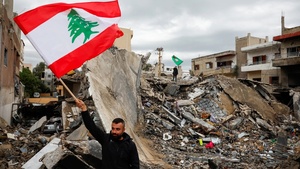By Osman Softic || 21 February 2025
The political intricacies
 This fact ought to be kept in mind when reflecting on complexities and internal intricacies that plague the Palestinian question. Mahmoud Abbas has recently signed a decree to end payments to the families of Palestinians who used resistance against Israeli occupation armies. Some analysts predict that despite Abbas’ efforts to become subservient to the Trump administration, the American president apparently does not look favorably upon the Palestinian authority, which is a good sign at least. This sclerotic, out of date and corrupt political edifice that exploits the misery of the Palestinian people to remain entrenched in power, surely does not deserve to be allowed to enslave the Palestinians of Gaza. However, Riyadh’s influence on Trump and Netanyahu may in the end give another lease on life for the corrupt Palestinian authority but only time will tell what will ensue.
This fact ought to be kept in mind when reflecting on complexities and internal intricacies that plague the Palestinian question. Mahmoud Abbas has recently signed a decree to end payments to the families of Palestinians who used resistance against Israeli occupation armies. Some analysts predict that despite Abbas’ efforts to become subservient to the Trump administration, the American president apparently does not look favorably upon the Palestinian authority, which is a good sign at least. This sclerotic, out of date and corrupt political edifice that exploits the misery of the Palestinian people to remain entrenched in power, surely does not deserve to be allowed to enslave the Palestinians of Gaza. However, Riyadh’s influence on Trump and Netanyahu may in the end give another lease on life for the corrupt Palestinian authority but only time will tell what will ensue.
Trump may well be an unorthodox leader, some of his opponents even regard him as a fascist, but Colonel Karen Kwiatkowski, a retired former military intelligence official at the Pentagon and NSA thinks the opposite. Trump is not a fool one might think he is; he fully understands how Israeli politics operates and this is why Bibi Netanyahu fears him most. Trump knows that shipping the Palestinians of Gaza to Jordan would risk a serious disturbance and may even bring down the peace treaty Jordan signed with Israel in 1994.
US officials praise Jordan as the anchor of stability in the region. Trump too values Jordan only for its unique purpose and an asset to Israeli security. Jordan would collapse overnight had it not been for the US military protection and Israel’s support. The Black September Palestinian rebellion in 1970 when Jordanian army under the leadership of Pakistani general Zia-ul-Haq, had killed at least 3,000 Palestinian fedayeen fighters of a PLO leftist faction, forcing Yasser Arafat to relocate his headquarter from Jordan to Lebanon, is a testament to this claim.
On the western Israeli flank is Egypt where most Palestinians from Gaza are expected to be resettled. American aid to Egypt is equally important to sustain the military capacity of the Sisi regime. However, the Egyptian general-turned president vehemently rejected Trump’s proposal, fully aware of its ramifications for his fragile regime and the impoverished state. Sisi may be a dictator, but he is aware of danger for his regime and understands regional consequences, which would undermine Egypt’s security balance and could potentially even cause Israeli-Egyptian peace agreement signed in 1979. to be broken.
The Western dilemma
Therefore, American and European liberal elites are worried about what might happen to Israel in these circumstances if Trump and Netanyahu find ways to accomplish their purported goals. They do not care one bit about the wellbeing of the Palestinians, their human rights, right to self-determination and to their own state and their future. They are concerned that Trump may push the entire region into a wider and protracted armed conflict, as if what already happened for the past 16 months under Biden’s watch was a peaceful and rosy chapter in Middle East history.
Western elites and their Arab conservative counterparts are also worried that American and Israeli hegemony in West Asia could become seriously undermined if it is not reconfigured to continue to serve western hegemonic interests. They are worried that the Abraham accords, which Trump himself had initiated in his first term, will unravel as a result of the exodus of Palestinians from Gaza. Such a scenario, western liberal interventionist political elites in particular and Arab monarchies are worried, would provide opportunity for the Iranian-led Axis of Resistance to revive its strength, which has recently been weakened if not completely diminished by the American-supported Israeli bombing of Lebanon, the destruction of Syria and the synchronized and peacefully choreographed downfall of the Assad regime in Damascus (a masterstroke led from behind by the US but largely executed by Turkey-supported HTS rebels in coordination with Israel), notwithstanding divergence of interests of Ankara and Tel Aviv and their occasional convergence on some matters.
Hence, western liberal elites and Arab monarchies are panicking for what might happen to Israel and to the Abraham Accords. This is where the real concern lies. They do not care about the welfare of the Palestinians nor for the future of Gaza. It is all about the preservation of the empire and western hegemony over West Asia which had manufactured conflicts, sectarian strife, and then exploited them for purposes of extracting cheap energy resources of the region while turning the most powerful actors in West Asia against one another so it can perpetuate the western hegemony without facing a major challenge from within the region it dominates.
The US hegemony
 We should try to understand the most recent geopolitical shifts in balance of power in the Middle East through these lenses, namely the western quest to preserve hegemony when the US military power is in steep decline (at least from the vantage point of a long-term forecasting). Washington will eventually have to reduce its military presence in the region. American and Israeli joint regional goals in the past year have been centered around strengthening Israel, as well as Turkey to a certain extent, at least vis-à-vis Iran, as enforcers of the US hegemony in the Middle East. Hence the proclamation by the US former Middle East envoy Amos Hockstein “escalating to deescalate” or “gaining peace by military strength”.
We should try to understand the most recent geopolitical shifts in balance of power in the Middle East through these lenses, namely the western quest to preserve hegemony when the US military power is in steep decline (at least from the vantage point of a long-term forecasting). Washington will eventually have to reduce its military presence in the region. American and Israeli joint regional goals in the past year have been centered around strengthening Israel, as well as Turkey to a certain extent, at least vis-à-vis Iran, as enforcers of the US hegemony in the Middle East. Hence the proclamation by the US former Middle East envoy Amos Hockstein “escalating to deescalate” or “gaining peace by military strength”.
Total destruction of Gaza and deliberate killing a large number of Palestinians were carefully calculated, albeit an unspoken policy goals, by Israelis and the Americans, to instill fear in the population of Gaza and in order to give up support for Hamas as a small but formidable resistance organization and a Sunni pillar of the Iranian-supported Axis of Resistance to Israeli expansionism in the region.
Bombing of Lebanon, destroying Hezbollah’s military arsenal and decimating its political and military leadership, command and control structures, in order to ultimately organize what the US ambassador to Beirut Lisa Johnson once called preparations for a new “post-Hezbollah” order in Lebanon. What she meant by saying this was setting the stage for an American-supervised, Saudi-financially supported and technocratically-administered western protectorate of Lebanon, which ought to be friendly to Israel, was another important policy objective of Washington and Tel Aviv.
Choosing the right timing for wresting control of Syria in order to eliminate Iran’s direct influence in Syria and in Lebanon by using Syria as a land bridge to sustain Hezbollah militarily in Lebanon, was accomplished jointly with Turkey, coincidently or by design, makes no difference.
Offensive realism
From a theoretical point of view of realism in international relations this perfectly fits within John Mearsheimer’s understanding of offensive realism, which ultimately means reducing hegemonic power of Iran by granting shared influence in Syria to Turkey and Israel respectively, which makes a perfect sense for the American hegemon.
The Middle East essentially has three major regional and formidable military powers worthy of respect. These are Iran, Turkey and Israel (Egypt is in Africa and UAE is in the GCC). It had been a long-accepted view that Iran had overextended its regional reach and influence far too wide which the US could no longer tolerate if it was to perpetuate its domination. Therefore, it had to be rearranged to fit the US interests.
Portion of Iranian influence was redistributed by granting it to Ankara in Syria, Israel exploited the opportunity and occupied additional land in the Golan Heights and Mount Hernon, and some other areas, while Riyadh was given the long-sought influence in Lebanon by eliminating a perceived excessive Hezbollah’s domination from the new Lebanese government.
Politically, Hezbollah is only marginally weakened in Lebanon’s decision-making process as it kept five ministerial posts together with its Shia ally, the Amal movement led by Nabih Berri. Amal-Hezbollah Shia Duo has lost its previous veto power as it was unable to be granted one additional vote over one third it was allocated in the past. Saudis were pleased to see the Christian factions go, those deemed in the past to be closely allied with Hezbollah, Iran and Syria Assad regime.
Hence the Free Patriotic Movement (FPM) of Gebran Bassil and Marada movement led by Suleiman Frangieh, both Hezbollah allies in the resistance block, were removed from the power equation completely without elections. Instead, they were replaced by fiercely pro American, pro-Israel and pro Saudi Lebanese Forces (LF) led by Samir Geagea, a former notorious militia commander who had been convicted for murdering Lebanese prime minister.
The Sunni diminishing influences
 Another Maronite Catholic political party called Kataeb of Lebanon, the right wing Phalangist force established by Pierre Jamail and still run by the Jamail family as a feudal property is now also included in the new government. Traditional Lebanese Sunni political blocks have largely been marginalized as a result of serious rifts between the Saudi royal court in Riyadh and the Saad Hariri Future Movement which used to galvanize Sunni voters in the past.
Another Maronite Catholic political party called Kataeb of Lebanon, the right wing Phalangist force established by Pierre Jamail and still run by the Jamail family as a feudal property is now also included in the new government. Traditional Lebanese Sunni political blocks have largely been marginalized as a result of serious rifts between the Saudi royal court in Riyadh and the Saad Hariri Future Movement which used to galvanize Sunni voters in the past.
This is not to say that Sunnis are not present in the government, they are, but they are fragmented and dispersed between various independent candidates and were relegated to the margins of politics while being replaced by high powered technocrats such as the new prime minister Nawaf Salam, former president of the ICJ in the Hague.
In a way, Sunnis of Lebanon have failed to mount a unified political block to safeguard their interest. This is very reminiscent of the way the government was formed in Bosnia under the pressure and influence of American ambassador and a German international bureaucrat who denied the government to the largest elected Bosniak (Muslim) party which garnered plurality of votes only to replace it instead with three minor parties to punish alleged Bosniak political leadership for their purported links to Muslim Brotherhood, Turkey’s AKP and Qatari government.
It is easily discernible how Israeli; Gulf Arab and western American-led interests operate in synchronization when it comes to dealing with small Muslim majority states they want to control. The same or similar template is easily recognizable in both cases, Lebanon now and Bosnia two years ago. It has all been done in the name of democracy, freedom, and fight against corruption, when in reality it was undemocratic, dictatorial, and arrogant engineering to deny the people legitimate representation.
This is exactly what had been done under the watchful eye of the previous Biden administration, by using threats, intimidation, blackmail and enticement, which has also been sincerely admitted by the leader of the Bosnian Croats who now regrets succumbing to American pressure, but only after American ambassador had left Sarajevo.
The unfinished war
Western liberal elites and Arab monarchical regimes and dictatorships (except Qatar which supports the Palestinians including Hamas for its own purposes of statecraft and diplomacy) are puzzled by the fact that Hamas remains a powerful force in Gaza which Israel could not destroy. Therefore, there is a tremendous pressure on Americans by some Arab regimes to allow the Palestinian authority to extend its governance to Gaza in order to relegate Hamas to irrelevance, despite the fact Hamas is to be credited for successful resistance. Ramallah-based PA under Mahmoud Abbas domination wants to be granted the approval to extend its authority to Gaza despite the fact that the so-called security cooperation between the PA and Israeli occupation authorities is responsible for disappearance, arrests, and on occasions even deaths of many Palestinian youths. These complex external and internal tensions should not easily be disregarded if one wants to comprehensively understand the plight and challenges the Palestinian people are facing at this point in history.
 Osman Softić is a Research Fellow at the Islamic Renaissance Front. He holds a BA degree in Islamic Studies from the Faculty of Islamic Studies of the University of Sarajevo and has a Master degree in International Relations from the University of New South Wales (UNSW). He contributed commentaries on Middle Eastern and Islamic Affairs for the web portal Al Jazeera Balkans, Online Opinion, Engage and Open Democracy. Osman holds dual Bosnian and Australian citizenship.
Osman Softić is a Research Fellow at the Islamic Renaissance Front. He holds a BA degree in Islamic Studies from the Faculty of Islamic Studies of the University of Sarajevo and has a Master degree in International Relations from the University of New South Wales (UNSW). He contributed commentaries on Middle Eastern and Islamic Affairs for the web portal Al Jazeera Balkans, Online Opinion, Engage and Open Democracy. Osman holds dual Bosnian and Australian citizenship.

